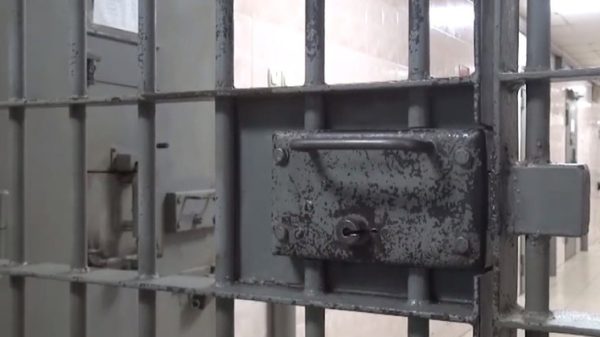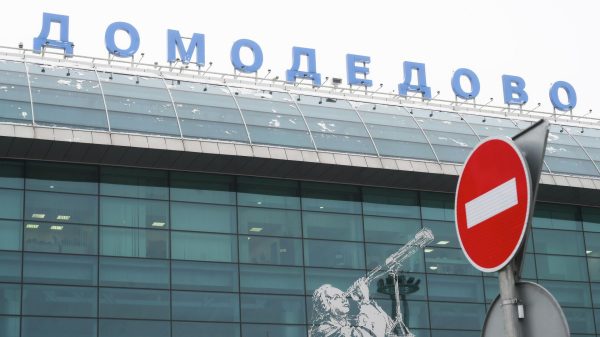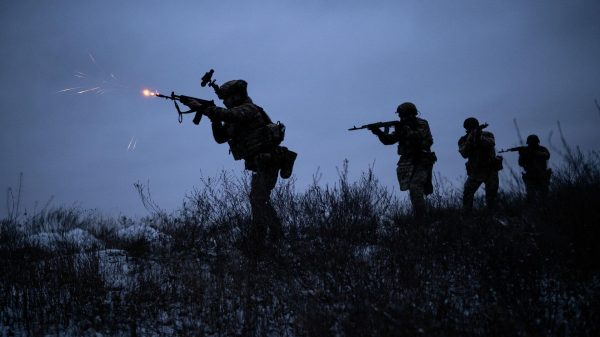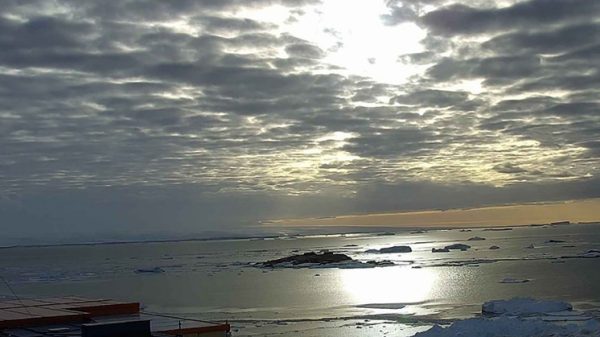On Christmas morning, Siouxsie Wiles got a call from her father-in-law. He he had woken up feeling fluey after attending an event a few days before.
As he spoke, Wiles looked up his closest Covid-19 testing centre on her phone. “I recommend you give them a call,” she told him, “because you are not coming for Christmas dinner.”
Her parents-in-law had been down to bring the ham. Christmas was, if not exactly cancelled, deferred to the day after Boxing Day, when Wiles’ father-in-law’s test came back negative.
It will no doubt have struck some as an overreaction. Wiles and her family live in Auckland, where local transmission of coronavirus had not been recorded since November. Since then, life in New Zealand had seemed deceptively normal.
That is what concerns Wiles. Last January she was a microbiologist at the University of Auckland, specialising in the scientific possibilities of bioluminescence, as well as a widely awarded media commentator.
New Zealand Covid case appears to be South African variant, officials say
Read more
Twelve months later, Wiles is New Zealand’s most famous scientist (at least its most visible, thanks to her trademark pink hair) and a lynchpin of its pandemic success, having been tireless and ever-present in her efforts to explain how the virus spreads.
At her peak she was doing 20 to 30 interviews a day. But while many might see her as a figure of 2020, for Wiles the threat remains very much at hand.
Though New Zealand’s border restrictions have been bolstered since the new variant of coronavirus took off in December, a steady stream of cases have been confirmed in arrivals in quarantine.
It seemed inevitable that one would eventually slip through and that is what happened on Sunday, when it was revealed that a woman who had spent two weeks in quarantine had returned a positive test after leaving. Experts say she was likely infected while in managed isolation.
“No system is 100% perfect,” says Wiles.
“The most frustrating thing is the idea that if we get incursions through the border that it’s a failure of our systems. … Every defence you put in place has some inherent foibles, so you layer them all up to make things better.”
An animated gif demonstrating this so-called “Swiss cheese model” of crisis response, which Wiles created with The Spinoff cartoonist Toby Morris, was one of her breakthrough communiqués last year – framing personal responsibility as just as necessary a safeguard as masks.
Siouxsie Wiles & Toby Morris, CC BY-SA 4.0 <https://creativecommons.org/licenses/by-sa/4.0>, via Wikimedia Commons
“We’re going to need to keep working at elimination,” she wrote in October. But three months later, by and large, Kiwis aren’t doing their bit.
Should coronavirus start spreading in the community following Sunday’s case in Northland, or any other case that might emerge, contact tracing will be vital to limiting its advance – but use of the government’s Covid-19 tracer app has fallen dramatically since the peak of 2.5m daily scans in September.
To Wiles, the widespread complacency reflects the belief that containing coronavirus is the government’s battle, waged only at the borders.
“We obviously have to rely on the government and we need managed isolation to work … but the idea that we are entirely reliant on them, and we don’t have any responsibilities ourselves, drives me crazy,” she says.
We’ve been pitted against each other a lot … People will always bring up ‘You’re a woman, you’ve got pink hair’
Mounting anxiety about the new variant has sparked calls for even tighter border controls – causing Wiles to worry that the community spirit that made the national lockdown so successful has waned.
When the government moved in December to require pre-departure tests, Wiles was a lone voice warning of its potential to discriminate along socio-economic lines, with tests often costly.
The scientific case in favour is indisputable, says Wiles – “but that’s not the only thing that counts.” The risk of incursion must be balanced against overseas New Zealanders’ right to return home, she says.
“The whole idea that you would say ‘just stop flights, or make it as hard as possible, because we’re trying to keep living our unstoppable summer’ – it just makes me really angry, on a human level,” she says.
In her public appearances and commentary, Wiles has sought to strike a balance – often prompting unfavourable (and gendered) comparisons with the epidemiologist Michael Baker, who has consistently pushed for a hardline response.
“We’ve been pitted against each other a lot, and that’s been really difficult … People will always bring up ‘You’re a woman, you’ve got pink hair’ – and Michael fits the bill of what an expert looks like.”
The daily grind never felt sweeter: New Zealanders should enjoy their Covid-free liberties
Read more
Both their approaches were reflected in New Zealand’s response, Wiles agrees, combining authority and empathy.
But at this crucial juncture, when sense of connection to the world is dwindling but complacency could be deadly, Wiles quotes the UN secretary general: “None of us is safe until all of us are safe.”
It is not enough to just mind our own borders, she says. “We actually need to be doing all we can to advocate for all the measures possible overseas … to stop the pandemic, to stop variants like these arising.”
She sees three opportunities for New Zealand to contribute to the global effort – first, by expanding knowledge of how the virus spreads.
There has been so little community transmission in New Zealand, it has been traced to the level of bin lids and lift buttons. “Almost every cluster has been identified … so we can add really good science to this, which helps with controls,” says Wiles.
Secondly, as one of the few western countries to have succeeded in controlling coronavirus, New Zealand (and Australia) can model to others specific “things that we did – and you can do them too,” says Wiles. “The UK could still do these things.”
Wiles is a Brit herself, having relocated to New Zealand with her Kiwi husband and their daughter (now 14) just over a decade ago. Her parents, at home in Hull, have been shielding for a year due to her mother’s health condition.
“I have been very strict with her,” says Wiles. But the hardest part of watching the UK from afar has been “knowing that it doesn’t have to be that way”.
Giving interviews to UK press early last year, Wiles was often asked what New Zealand knew that led it to take the path it did. “We had the same evidence – then we acted differently based on values,” she says.
That saw the UK government task the private sector with crucial responsibilities – contact tracing and testing – it did not have the skills to do; and prioritise the economy over public health, Wiles says.
More relevant to New Zealand’s success than its small population or remote location, Wiles believes, was its “political values that saw people as the economy, and our health as important” – and leadership that followed the science, without ego.
She fondly recalls the prime minister, Jacinda Ardern, calling her up, out of the blue, to ask her to explain how the virus transmitted via surfaces.
It was of a piece with a government response that had combined strength and softness, “putting the scaffold in place but asking people to do it – to help each other,” says Wiles.
That is the third way New Zealand can contribute: by demonstrating the possibility of dramatic collective action, which will also be needed to tackle other challenges like the climate crisis..
“I would hope that we could go: ‘Look, you can totally make these drastic changes and adjust, can we do this for other things?’” But the speed with which complacency has set in suggests that may not be the case, Wiles adds ruefully.
Her father-in-law understood completely at Christmas. “He said, ‘I knew when I rang you that that was what you were going to say’.”






















































Свежие комментарии